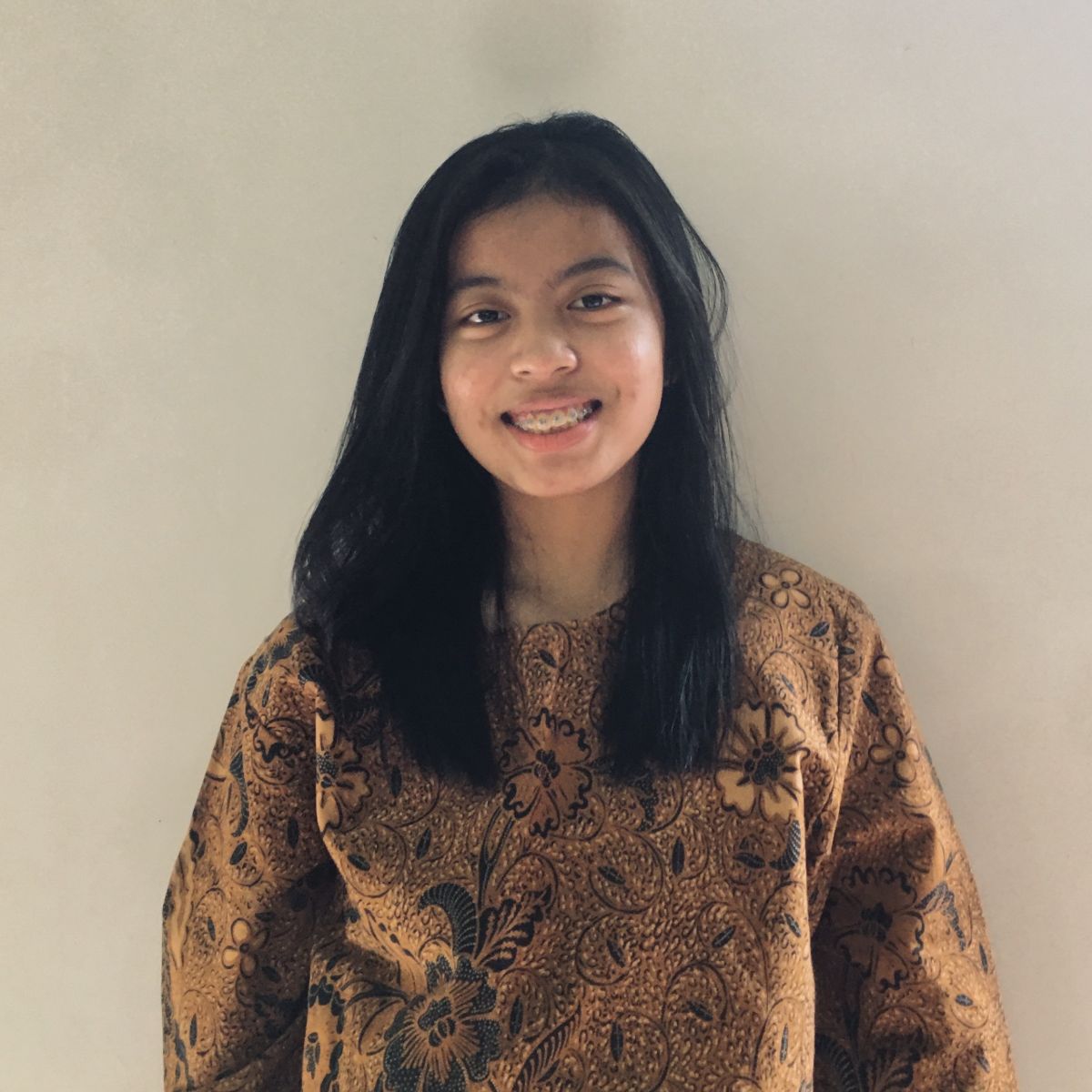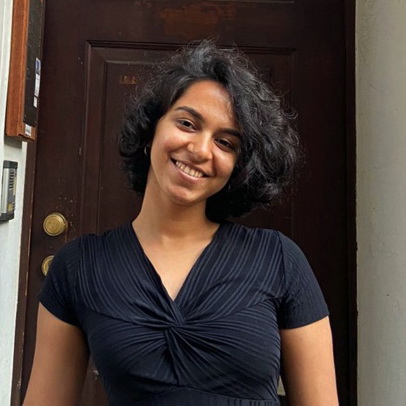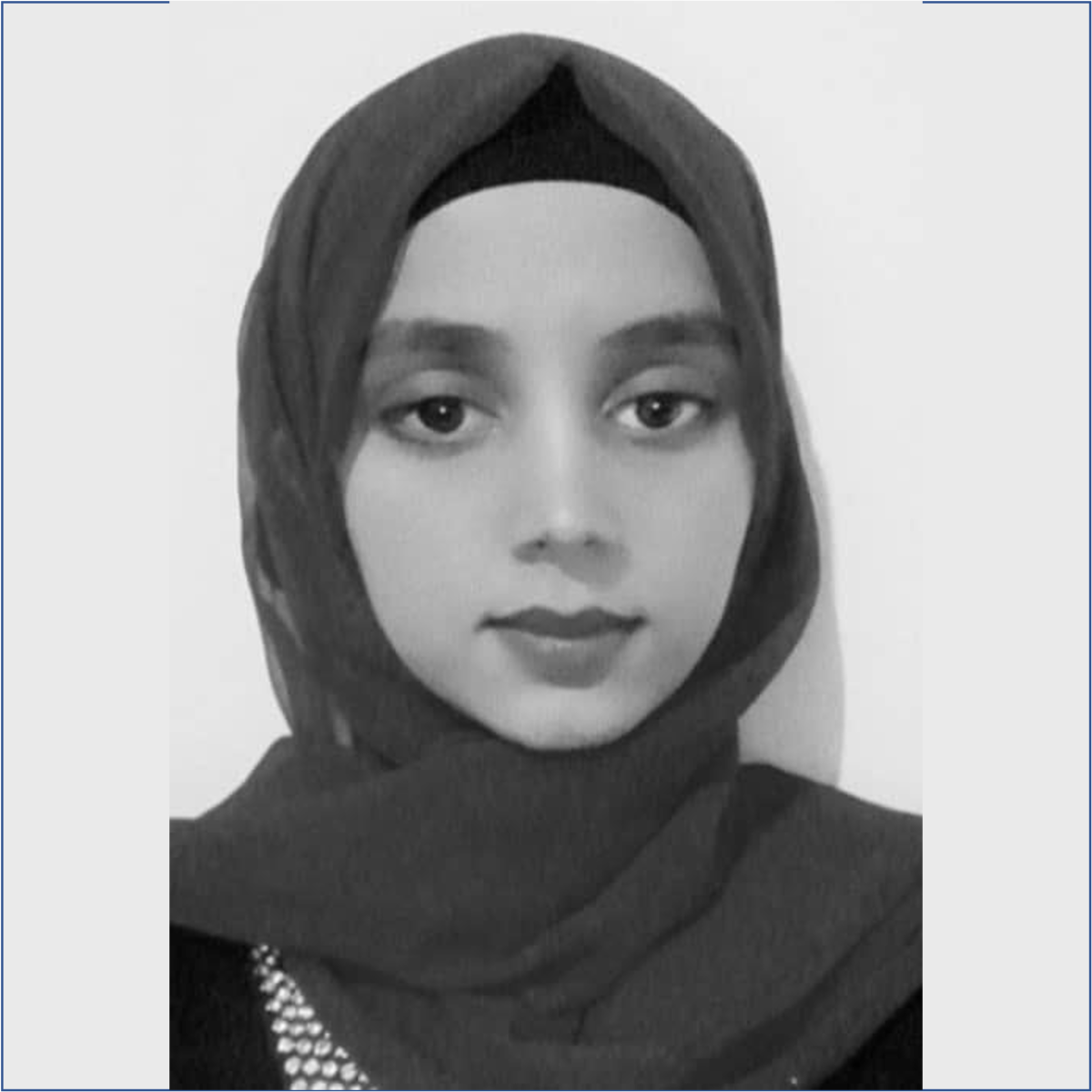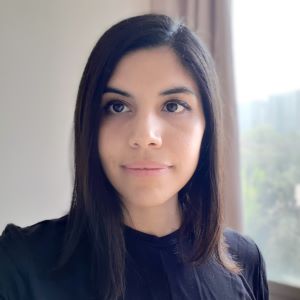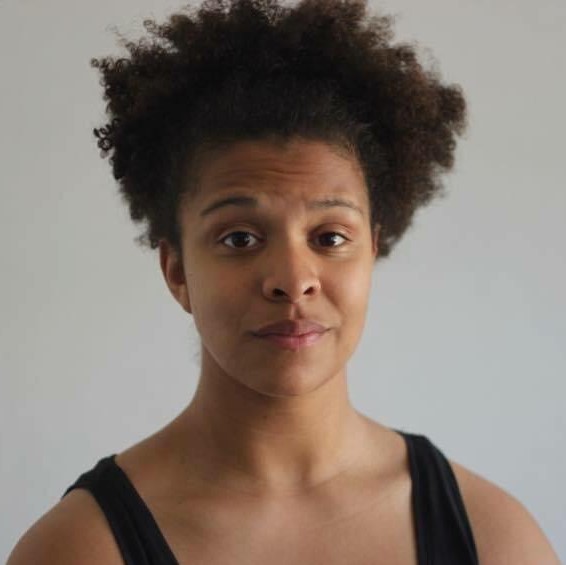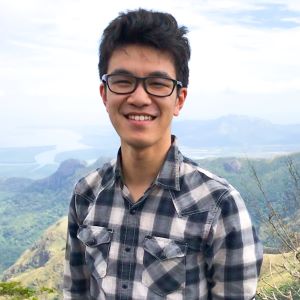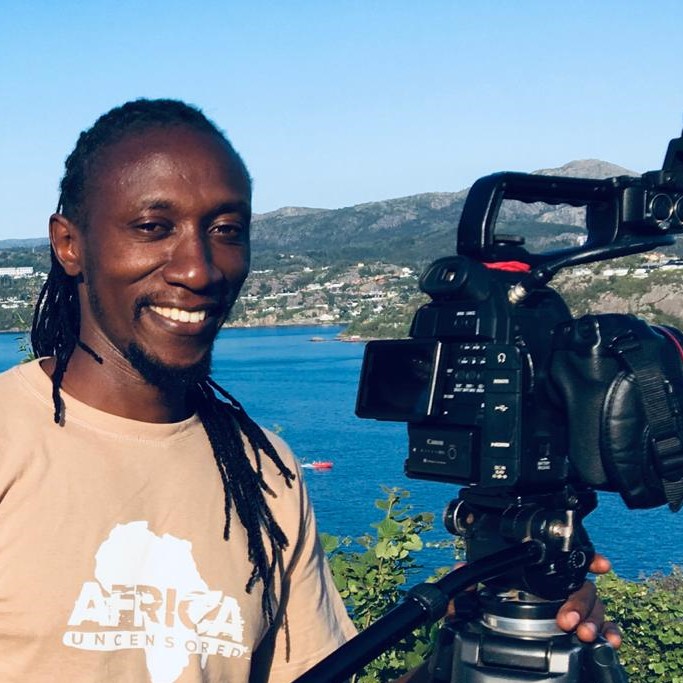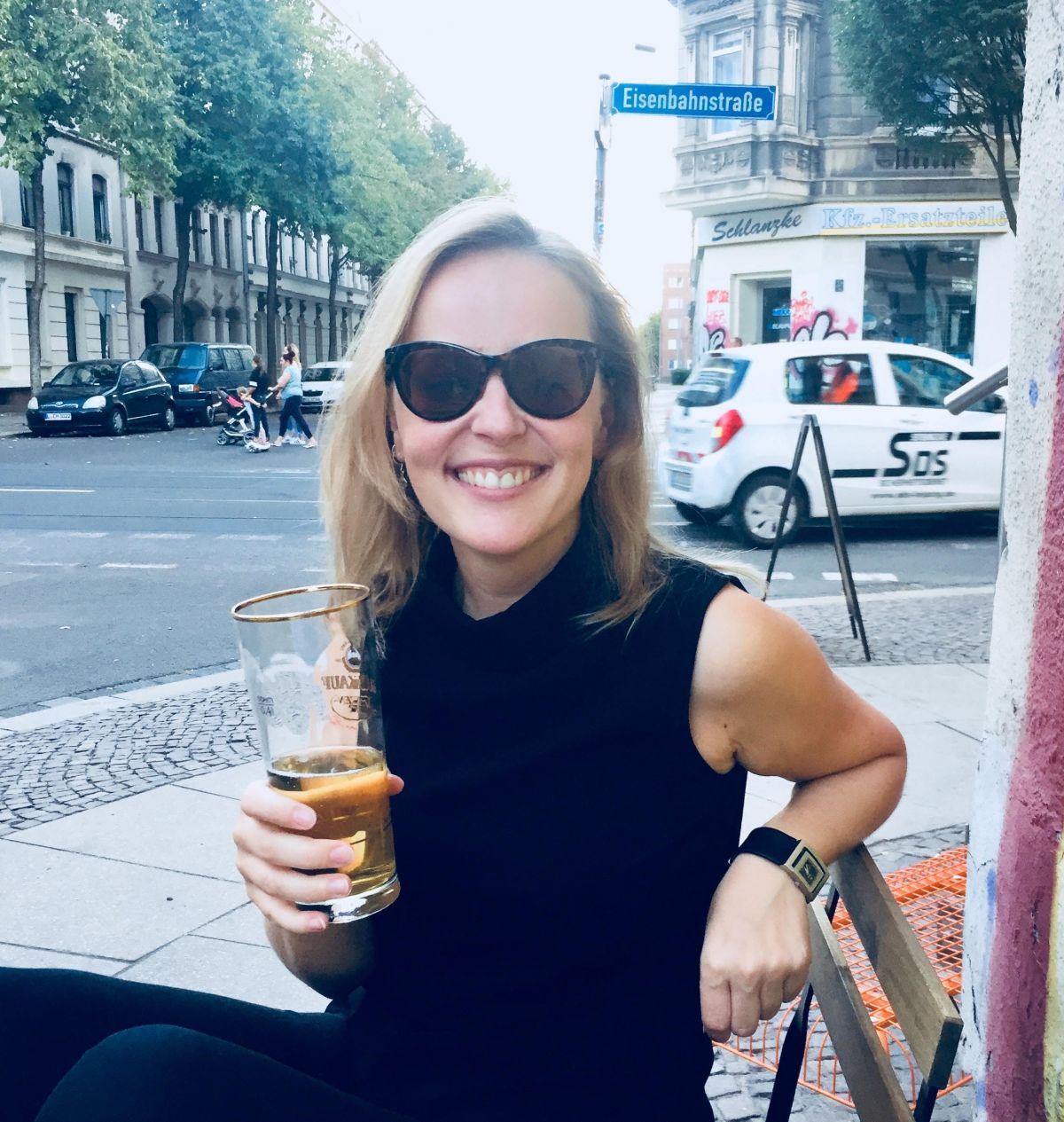Nurturing critical thinking for sociopolitical issues among youth in Indonesia
When public debate moved online during the pandemic, Lamtiar noticed how many people expressed extreme and disrespectful opinions. And while that’s nothing new, she had hoped that the younger generation would be better.
Indonesia, Southeastern Asia
Story by Lamtiar Nababan. Edited by Melaina Dyck. Translated by Brurce Mecca
Published on October 31, 2021.
Reading time: 5 minutes
This story is also available in 

I believe critical thinking is essential to survive the digital age. As a 15-year-old Gen-Z [1] who cares about socio-political issues in Indonesia—a country ranked 68th in global literacy, [2] but ranked 3rd worldwide in social media usage [3]—I founded a platform called Seruan Muda [4] (“Voice of Youth” in English) in the hope of creating a safe digital environment for youth my age to nurture their critical thinking and awareness of social issues in the country. Through time, I have come to realize that critical thinking is not just another set of skills to acquire, but also a privilege since not everyone was lucky enough to grow up in an environment where being critical is rewarded.
While people being disrespectful towards different opinions is not a new thing, it is concerning for me because it is ubiquitous among people my age. This should not happen—the younger generation should be better.
When the COVID-19 pandemic started and classes went online, everyone around me—and around the world [5]—started getting more active on social media. I saw a lot of concerning news, particularly news that sparked debates and moral dilemmas in Indonesia. Issues such as gender equality and feminism, environmental activism, and religious freedom have been getting more attention in Indonesia during the pandemic. For example, I saw debates on the latest bill on the Sexual Harassment Prevention Law (RUU PKS) in Indonesia. This bill has faced hard rejections from the religious groups and is now “compromised” by excluding a lot of critical elements that define sexual harassment, such as forced abortion and forced marriage. [6] Seeing the debates, I am glad that more people are increasingly aware of the latest sociopolitical issues, but, at the same time, I find that some people also express opinions that are politically extreme and disrespectful to others. While people being disrespectful towards different opinions is not a new thing, it is concerning for me because it is ubiquitous among people my age. This should not happen—the younger generation should be better.
In November 2020, my childhood friend Abraham and I co-founded Seruan Muda to share our perspectives and respond to social issues in Indonesia, such as gender equality, hoax prevention, cyber-bullying, and environmental conflicts. The platform, aired on both Instagram and a website, provides key takeaways from our multi-perspective discussions with fellow young people on the latest social issues. As we grow our team, we try to maintain an environment of respect, predicated on the principle that “all your opinions are valid as long as you provide solid arguments.”
I found that many of my friends were reluctant to join Seruan Muda because their parents forbid them to do so. It seems that this is because being critical is uncommon among older generations and things that are uncommon are scary.
As we tried to recruit our friends to join our platform, I became aware of my privilege of being born in a family that encourages critical thinking. I found that many of my friends were reluctant to join Seruan Muda because their parents forbid them to do so. It seems that this is because being critical is uncommon among older generations and things that are uncommon are scary. My friends’ parents feared that critical thinking is close to “western liberal ideas” that teach people to prioritize individual freedom over the communality that is a traditional Indonesian value. For example, in Indonesia, it is expected that children should take care of their parents as they get older, while in many western cultures, this is not the case. While this example is valid, I believe that the general fear towards critical thinking is misguided, as the purpose of critical thinking is to give each one of us the tools to process information through any values that work for us, regardless of where they come from, while being respectful to opinions different from ours. It is unfortunate when critical thinking is inhibited by fear. Given this fear, it was not easy to convince my friends to join my platform unless they were already motivated internally to engage critically with social issues.
But I do not lose hope. Many young people are joining my organization regardless of their parents’ fear. I have witnessed that more and more of the younger generation in Indonesia value critical thinking and are aware of sociopolitical issues. Seruan Muda is participating in and a product of that trend, as a safe space for younger generations to exchange views respectfully and without fear. As we grow up in this time of unprecedented access to information, I feel optimistic that we can use our thumbs to type ideas that lay the groundwork for a more humane, transparent world.
Footnotes
[1] Generation Z (Gen-Z) refers to people born in the late 1990s and 2010s.
[2]https://worldpopulationreview.com/country-rankings/literacy-rate-by-country
[3] https://digitalmarketinginstitute.com/blog/social-media-what-countries-use-it-most-and-what-are-they-using
[4] https://www.instagram.com/seruanmuda.id and https://seruanmudaindonesia.weebly.com/
[5] https://www.vox.com/recode/22295131/social-media-use-pandemic-covid-19-instagram-tiktok
[6] https://www.cnnindonesia.com/nasional/20210903131110-32-689315/kompaks-ruu-pks-ganti-nama-jadi-tpks-85-pasal-hilang
How does this story make you feel?
Follow-up
Do you have any questions after reading this story? Do you want to follow-up on what you've just read? Get in touch with our team to learn more! Send an email to [email protected].
Talk about this Story
Please enable cookies to view the comments powered by Disqus.
Subscribe to our Monthly Newsletter
Stay up to date with new stories on Correspondents of the World by subscribing to our monthly newsletter:
Tags
Topic: Liberation
> United Kingdom
Democracy Dies With A Whimper
A story by Anonymous
7 min Long Read
To me, Hong Kong was more than just another Chinese city with a glittering skyline. It represented a haven, a refuge for the political freethinker, the alienated youth, and international vagabond alike. It was a bastion of liberal values, bolstered by a strong rule of law, an independent judiciary and principled, upstanding media willing to fight to preserve their freedom. Read more...
> India
On Rasam and Identity
A story by Janani Padmanabhan
5 min
Rasam is the answer to everything, or so I was told during my middle-class vegetarian Tamil brahmin upbringing. Read more...
> Afghanistan
Afghanistan, the cemetery of girls' dreams
A story by Effat Siawash
6 min
In times of devastating wars that left thousands of families homeless, women widows, children orphaned, I am an Afghan girl who wants to have a higher education in the field of journalism and to contribute positively to my community. In these pressing times, I have discovered poetry as a way for me to use my voice and make a difference in my community. Read more...
Explore other Topics
Get involved
At Correspondents of the World, we want to contribute to a better understanding of one another in a world that seems to get smaller by the day - but somehow neglects to bring people closer together as well. We think that one of the most frequent reasons for misunderstanding and unnecessarily heated debates is that we don't really understand how each of us is affected differently by global issues.
Our aim is to change that with every personal story we share.
Community Worldwide
Correspondents of the World is not just this website, but also a great community of people from all over the world. While face-to-face meetings are difficult at the moment, our Facebook Community Group is THE place to be to meet other people invested in Correspondents of the World. We are currently running a series of online-tea talks to get to know each other better.











